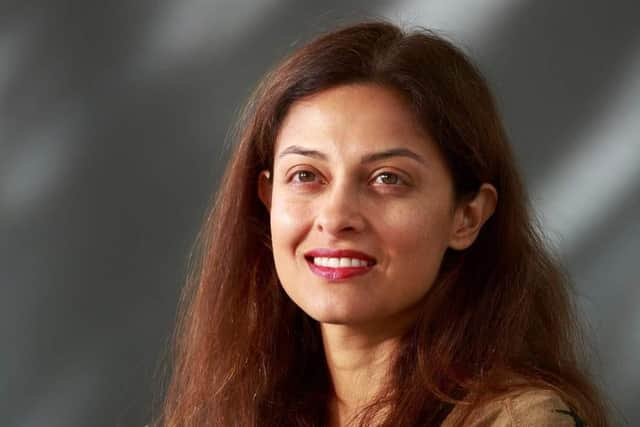Devi Sridhar: Online threats should be met with harsher penalties
Professor Sridhar, a key adviser to the Scottish Government during the coronavirus crisis, said “a lot of anger” had been directed towards scientists.
Elsewhere, she said the UK Government made mistakes in its handling of the pandemic partly because it was “consumed with Brexit”.
Advertisement
Hide AdAdvertisement
Hide AdProf Sridhar, who is chair of global public health at Edinburgh University, made the comments during an event at the Edinburgh International Book Festival on Thursday to discuss her book, Preventable: How a Pandemic Changed the World & How to Stop the Next One.


She wants legal and structural changes to protect those in the public eye.
"The first is harsher penalties for threats,” she said.
Prof Sridhar said a lot of public health officials and public servants had received "threats and hate speech", adding: "I think we have to have real consequences, if it's emailed, if it's sent.
"The virtual space has kind of been a cowboy zone. If someone says to you something very aggressive online, it's OK. If they say it to your face in person, they would be arrested.
"There's a real difference in how we regulate that space."
She said people need to know "your IP address can be tracked, the police can find where you are, you are not hidden from this, so if you do send something there is going to be consequences".
The expert added: "The second thing is anonymity online. I think it's quite dangerous now how much anonymous activity there is. A lot of it is quite vile, and is quite horrible."
She said institutional support was also important.
Prof Sridhar has written about being the subject of “online attacks” during the pandemic, including being targeted in tweets, YouTube videos, blogs and viral Facebook posts.
She previously said she was left “extremely shaken” when she was sent white powder and a used face mask in the post last summer.
Advertisement
Hide AdAdvertisement
Hide AdSpeaking at the book festival, the public health expert said many people “lost a lot because of the pandemic”.
She said: "They lost loved ones, they lost jobs, they lost their children’s futures in their mind. They have mental health issues of loved ones, and they feel angry, and I understand that anger and I'm empathetic to it.
"And a lot of anger has been targeted at the people who they see as responsible, and the people they see as responsible are scientists, because that's who's visible.
"And it's not just here in Britain. I actually think I've had an easier time in Scotland when I talk to my colleagues in Australia, the United States has been really bad, actually – they have guns as well."
Responding to a question from the audience, Prof Sridhar said she thought the pandemic had increased belief in conspiracy theories.
She said public health “has never been about lockdowns and shutdowns”, but because the Covid response was so exceptional, it had become associated “with state takeover” and with the taking away of freedoms.
Elsewhere, the expert was asked why she thought the UK Government “made so many mistakes in handling the pandemic”.
She said ministers were “very consumed with Brexit” and were “a bit distracted to focus on what was happening outside”.
Advertisement
Hide AdAdvertisement
Hide AdShe also said there was “a lot of money-making, a lot of profiteering” around personal protective equipment [PPE].
Her comments came as confirmed or suspected Covid deaths in Scotland rose in the week to Sunday.
Data from National Records of Scotland (NRS) showed 66 deaths were registered that mentioned Covid-19 on the death certificate in the week to August 14, an increase of six deaths from the previous week.
As of Sunday, 15,491 deaths have been registered in Scotland where Covid-19 was mentioned on the death certificate.
Of those who died, 49 were aged 75 or older, 12 were aged 65 to 74, and five were under 65.
Fifty of the deaths were in hospitals, ten were in care homes, and six were at home or a non-institutional setting.
Pete Whitehouse, NRS director of statistical services, said: “The latest figures show that last week there were 66 deaths where Covid-19 was mentioned on the death certificate. This is six more deaths than the previous week.
“People living in the most deprived areas were 2.3 times as likely to die with Covid-19 as those in the least deprived areas.
Advertisement
Hide AdAdvertisement
Hide Ad“The size of this gap slowly widened over the period of the pandemic, but has narrowed since January 2022, when the gap was 2.5.
“The number of deaths from all causes registered in Scotland in this week was 1,126, which is 112, or 11 per cent, more than the five-year average.”
Comments
Want to join the conversation? Please or to comment on this article.
